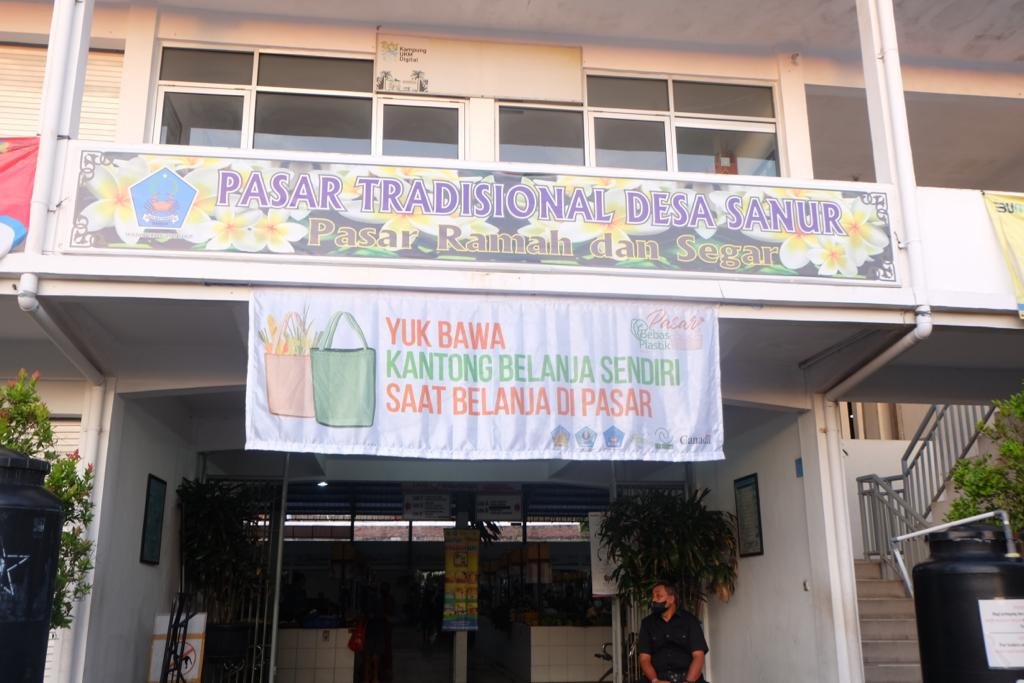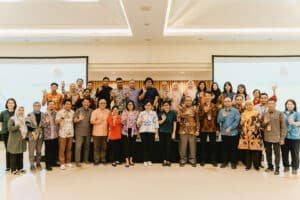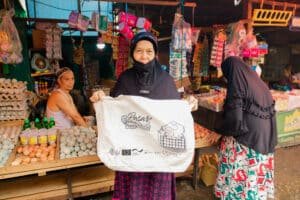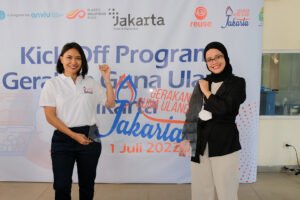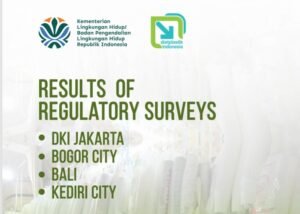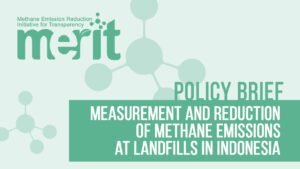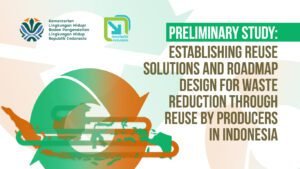A plastic-free traditional market is a very challenging job. Until now, no plastic-free market has been found in Denpasar or even in Bali, even though the government regulation on reducing single-use plastic bags has been issued for three years since 2018.
More than socialization and campaigns to traders and buyers are needed; they need to find alternatives. Traders want to retain buyers, and buyers want to avoid bringing their groceries without containers/wrappers.
The dilemma is that the price of plastic bags compared to the cost of leaves or other wrapping is very different. Leaf wraps or eco-friendly bags are costly. Meanwhile, traders are being pressured not to prepare plastic bag packaging. Meanwhile, only some know about bringing reusable bags or boxes from home.
Sanur Sindu Market, accompanied by the Center for Environmental Education (PPLH Bali) and the Plastic Bag Diet Movement (GIDKP) supported by Canada Fund and DKLH Bali Province, are looking for alternatives, especially plastic bag replacements. This effort aims to answer the problem of the use of plastic bags in the Sindu Market, an average of 2,969 pieces per day (PPLH Bali 2021 research data). This means there has not been a significant decline like in the retail/modern market.
In the Sindu Market Plastic Free Market trial dialogue on Sunday, January 9, 2022, in the courtyard, many inputs came from traders, waste care communities, NGOs, academics, and the Government. What has become an exciting discussion is the replacement for canning wrappers. “I can’t replace the plastic canning yet because buyers want caning that shouldn’t wilt, don’t splatter, and when they get home, they can be easily put in the refrigerator,” said Mrs. Putu, a canning seller at Sindu Market.
Mr. Gede Sudiana, Head of Sindu Market, gave feedback on how to use baskets in the past. The besek is in one package with a lid; don’t reduce the besek because the lid is being sold again. Make the excess back into Yadnya.” Added by Robi-Navicula, “Yadnya is holy, but we are not aware of using plastic and then leaving it and making the temple tired/dirty. So we lose the sacred meaning itself.”
Change takes time, but if there is commitment and supervision or even customs support, a plastic-free market can be implemented. “The message from the Governor of Bali is essentially to reduce, not eliminate 100%, use up what is left and use it over and over again so as not to create new plastic waste,” added Mr. I Made Dwi Arbani, Head of Waste Management, B3 Waste and PPKLH DKLH Bali Province.
According to Tiza Mafira, Director of GIDKP, “If the same person goes to a modern market, they can bring their bag, but why are they reluctant to bring their bag when they go to a traditional market? It turns out the answer is that traders still provide plastic bags. Then I asked a Tebet Market trader how much profit would be if you didn’t give plastic bags. The answer is IDR 500,000 per month. I think this experience can inspire traditional market traders at Sindu Market.”
Alternatives to crackle, especially for wrapping canning or meat, must be found. It requires cooperation from all stakeholders, including Government, NGOs, and the private sector, to make Perwali 36 and Bali Gubernatorial Regulation 97 successful in reducing the use of single-use plastic on the island of Bali. “Sindu Market is very open to receiving input to become a pilot project for a plastic-free market so that it can later be developed in other markets in Bali. “PPLH Bali has also educated traders and buyers, produced posters, videos, and audio of public service advertisements, and continues to monitor in collaboration with volunteers from Warmadewa University and STT Sanur Kaja,” said Catur Yudha Hariani, director of PPLH Bali.










